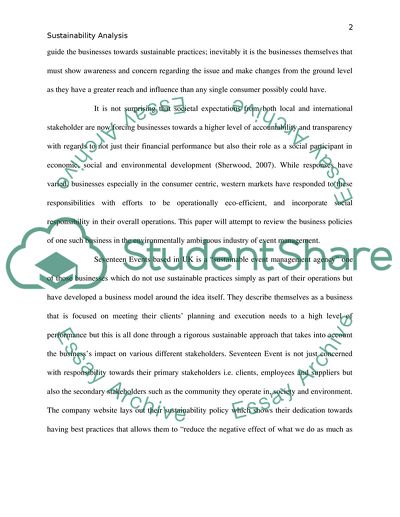Cite this document
(“Sustainability of Seventeen Event Company Essay - 1”, n.d.)
Sustainability of Seventeen Event Company Essay - 1. Retrieved from https://studentshare.org/social-science/1658677-critically-assess-the-sustainability-policy-of-the-seventeen-event-company
Sustainability of Seventeen Event Company Essay - 1. Retrieved from https://studentshare.org/social-science/1658677-critically-assess-the-sustainability-policy-of-the-seventeen-event-company
(Sustainability of Seventeen Event Company Essay - 1)
Sustainability of Seventeen Event Company Essay - 1. https://studentshare.org/social-science/1658677-critically-assess-the-sustainability-policy-of-the-seventeen-event-company.
Sustainability of Seventeen Event Company Essay - 1. https://studentshare.org/social-science/1658677-critically-assess-the-sustainability-policy-of-the-seventeen-event-company.
“Sustainability of Seventeen Event Company Essay - 1”, n.d. https://studentshare.org/social-science/1658677-critically-assess-the-sustainability-policy-of-the-seventeen-event-company.


